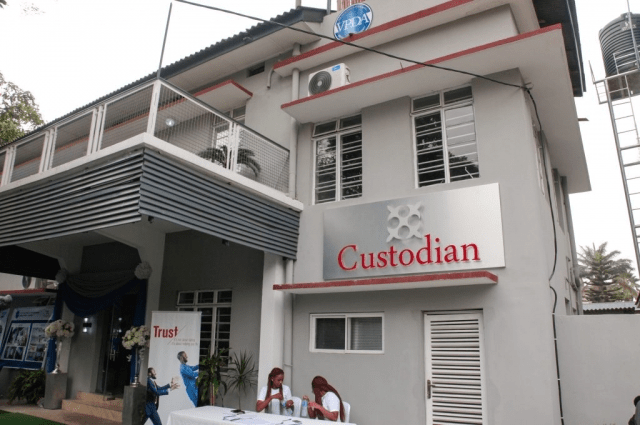Jeff Ukachukwu
For centuries, agriculture has been the silent engine of economic growth, sustaining civilisations and shaping the prosperity of nations. Today, Enugu State is embarking on a bold journey to revolutionise its agricultural landscape with the Enugu Farm Estates Programme—a visionary initiative poised to turn rural communities into thriving economic hubs. This is not just about farming; it is about transforming lives, unlocking prosperity, and placing Enugu on the global agricultural map. Imagine a future where every farmer has access to modern technology, every hectare of land yields its full potential, and agriculture is no longer seen as a struggle but a thriving industry. The potential impact of this programme on the local economy is significant, with the creation of thousands of direct and indirect jobs and a substantial increase in agricultural output.
With a strategic blueprint inspired by the success stories of Israel, Brazil, China, and Vietnam, Enugu State is determined to harness its rich agricultural resources to create employment, ensure food security, and drive economic growth. This ambitious strategy aims to increase agricultural output by 2000 per cent within the next decade, positioning Enugu as a model for sustainable agricultural development. Similar models in Israel have increased farm yields by 1,500 per cent through precision agriculture, while Brazil has turned formerly unproductive land into thriving agricultural hubs, contributing over $84 billion annually to its economy. This potential for economic growth is a reason for optimism about the future of Enugu State.
Enugu State embraces a holistic approach to agricultural transformation. The programme is not just about farming but about creating a structured and sustainable ecosystem where agriculture drives economic prosperity. The Enugu Farm Estates Programme is poised to impact the state’s socio-economic landscape by targeting food security, job creation, and rural economic development. Governor Dr. Peter Mbah stated, “We envision an Enugu where agriculture is not just a subsistence activity but a wealth-generating industry, contributing significantly to our $30 billion gross domestic products GDP target.”
The policy for the development of agriculture is a two-pronged approach. The first is supporting large-scale farming through land banks. Investors are allocated land to commence large-scale agriculture. The second is the farm estates. The Farm Estates is for smallholder farmers. While increasing the productivity of smallholder farmers, the government aims to aggregate them and make them produce in a manner that surpasses the productivity of large-scale farmers. This dual strategy—supporting smallholder farmers while creating opportunities for large-scale agribusiness—ensures Enugu’s comprehensive and sustainable agricultural transformation. In Nigeria, states embracing large-scale agribusiness have reported a noticeable increase in agricultural GDP within five years.
Enugu State has positioned itself as a destination for large-scale commercial agriculture. The Enugu State Land Bank, with over 130,000 hectares of land, is available for investors looking to establish large-scale agricultural enterprises. This policy framework attracts agribusiness investments, fosters public-private agricultural partnerships, promotes modern and technology-driven farming practices, and develops value chains for export and food processing.
The Farm Estate Model is built on three key pillars: sustainable agricultural practices that promote environmentally friendly farming techniques and ensure long-term productivity; economic empowerment that creates direct and indirect employment opportunities while increasing farmers’ incomes; and rural security and development that transforms uninhabited and underutilised lands into thriving agricultural hubs contributing to community stability. With these guiding principles, the programme is designed to harness Enugu’s vast agricultural potential and create an inclusive economy where smallholder farmers and large-scale investors can thrive.
The Farm Estates are designed to operate as cluster farms, with each estate covering 200 hectares per ward. Enugu State has 260 wards, resulting in 52,000 hectares of farmland, providing over 104,000 direct jobs and more than 156,000 indirect jobs. This unprecedented scale of development marks a bold step toward repositioning agriculture as a cornerstone of the state’s economy. A similar initiative in Vietnam helped lift over 20 million people out of poverty by transforming its rural agricultural sector through farm clusters and structured support systems.
Each Farm Estate is envisioned not just as a collection of farmlands but a well-planned agricultural community equipped with modern infrastructure, including central warehouses for produce aggregation and processing, tractor sheds to support mechanised farming, resting sheds to enhance farmers’ productivity and comfort, perimeter fencing for security and protection against encroachment, irrigation systems to support year-round farming, and well-constructed access roads to facilitate easy transportation of goods. These features ensure that farming is not just a subsistence activity but a highly organised, profitable, and sustainable venture. Studies show that in regions where mechanised and structured farming is implemented, agricultural productivity increases by up to 300%.
The success of the Enugu Farm Estates hinges on empowering the local farmers who will drive agricultural productivity. Each estate will accommodate 200 farmers from local communities, each allocated 1 hectare of land. To ensure maximum productivity, farmers will receive training and extension services to enhance their knowledge of modern agronomy practices, access to quality inputs such as improved seeds and fertilisers, mechanised support including tractors and other farming equipment, and guaranteed market access through structured offtake arrangements. By eliminating significant challenges such as lack of technical knowledge, poor market access, and inadequate resources, the programme ensures that farmers can focus solely on what they do best—farming. According to agricultural expert Dr Chidi Okafor, “Providing smallholder farmers with structured support and access to mechanised farming can triple their yields and significantly boost local economies.”
One of the significant barriers to agricultural success is the difficulty smallholder farmers face in accessing markets. The Enugu State Marketing Company will play a pivotal role in coordinating the offtake and sale of agro commodities. This structured marketing approach will prevent price fluctuations and market exploitation, provide farmers with a stable and reliable source of income, and encourage increased production by ensuring that produce is bought at fair prices. By removing the uncertainty often accompanying selling agricultural produce, the programme allows farmers to concentrate on improving their output. In Kenya, a similar structured market approach led to a 40% increase in farmers’ earnings within three years. The role of the Enugu State Marketing Company is to reassure farmers and investors about the stability of the market, ensuring fair prices and income stability for farmers.
The Enugu Farm Estate Programme is a collaborative initiative between the state and local governments, demonstrating how strategic public-sector partnerships can drive rural development. The funding structure ensures effective resource mobilisation, with a 60% contribution from the Enugu State Government and a 40% contribution from Local Governments. This joint approach secures funding and ensures accountability and shared responsibility in executing the programme. Similar models in China have shown that government-private partnerships in agriculture can lead to GDP growth of over 8% annually. This collaborative nature of the initiative makes all stakeholders feel included in the process.
Security is a significant concern in many rural areas, hindering economic activities. The Farm Estate Programme tackles insecurity by creating employment opportunities that reduce crime rates among the youth, transforming uninhabited lands into thriving farming communities, and strengthening local economies to make rural areas more attractive for investment and habitation. By addressing the root causes of insecurity—poverty and unemployment—this initiative provides a long-term solution to rural safety and stability. “Where there is economic activity, there is security,” says Chief Security Advisor Nnamdi Eze. “The best way to fight insecurity is to create jobs and ensure communities are economically viable.”
The Enugu Farm Estates Programme is more than just an agricultural initiative; it is a blueprint for economic transformation. The projected outcomes include a significant increase in Enugu’s GDP, with agriculture contributing over 40%, a reduction in rural-urban migration by creating thriving rural economies, achievement of a low poverty rate through job creation and financial inclusion, and a significant leap towards food self-sufficiency and reduced dependency on food imports. Governor Dr Peter Mbah has set a vision for Enugu’s economy to reach a GDP of $30 billion. Agriculture will play a pivotal role in achieving this goal, and the Farm Estates Programme is a critical part of this journey.
The Enugu Farm Estates Programme represents a transformational shift in state practices and perceives agriculture. With the proper support from government agencies, local communities, investors, and development partners, Enugu has the potential to become an agricultural powerhouse, setting a precedent for other states to follow. This initiative is not just about farming but about building a future where prosperity, security, and opportunity thrive in every rural community. The time for action is now, and Enugu State is leading the way.
.Dr Jeff Ukachukwu is a public affairs analyst. You can reach him at jeffuka@gmail.com
QUOTES
“With a strategic blueprint inspired by the success stories of Israel, Brazil, China, and Vietnam, Enugu State is determined to harness its rich agricultural resources to create employment, ensure food security, and drive economic growth. This ambitious strategy aims to increase agricultural output by 2000 per cent within the next decade, positioning Enugu as a model for sustainable agricultural development. Similar models in Israel have increased farm yields by 1,500 per cent through precision agriculture, while Brazil has turned formerly unproductive land into thriving agricultural hubs, contributing over $84 billion annually to its economy. This potential for economic growth is a reason for optimism about the future of Enugu State.”
“The success of the Enugu Farm Estates hinges on empowering the local farmers who will drive agricultural productivity. Each estate will accommodate 200 farmers from local communities, each allocated 1 hectare of land. To ensure maximum productivity, farmers will receive training and extension services to enhance their knowledge of modern agronomy practices, access to quality inputs such as improved seeds and fertilisers, mechanised support including tractors and other farming equipment, and guaranteed market access through structured offtake arrangements.”





